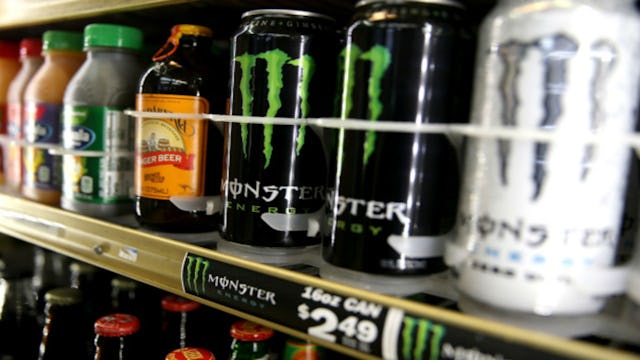If Your Kid Asks You For An Energy Drink, Just Say No

Just one 16-Oz energy drink can put a healthy young adult at risk for heart damage
If you are drinking a Red Bull right now, you might want to put it down before you read this. According to new research, drinking 32 ounces of any energy drink has been associated with harmful changes in a person’s blood pressure and heart function. These changes are well beyond what researchers have seen in individuals who just drink caffeine alone, so I guess you can grab a Diet Coke instead. Oh wait, never mind.
Sigh.
The study, published in The Journal of the American Heart Association, compared physical changes in a group of 18 healthy men and women after drinking an energy drink and also after drinking another beverage with similar amounts of caffeine but none of the other ingredients. While most energy drinks contain caffeine, little data exists about the other ingredients and their safety.
So, what are all these other ingredients, anyway? For this study, besides 320 mg of caffeine (that’s four cups of coffee), the “other beverage” contained four ounces of sugar, several B vitamins and a proprietary “energy blend” of taurine and other ingredients often found on labels of Monster Energy, Red Bull and 5-Hour Energy. There is an actual energy drink called “Cocaine” and we’re thinking if you drink that one, that’s on you.
Researchers measured the participants’ blood pressure and used an EKG to measure heart activity for 24 hours after consuming both beverages. Irregularities were found in the heartbeats of those who drank the energy drink but not the caffeine beverage, NBC News reported. Blood pressure also increased by close to five points after drinking the energy drink, but less than one point after drinking the caffeine beverage.
“More than 5,000 cases of people who got sick from energy drinks were reported to U.S. poison control centers between 2010 and 2013, and almost half of those cases were in children who did not realize what they were drinking,” NBC News reported.
Advertisers are marketing these drinks to kids under the guise of increased attention, reaction time and performance. They endorse top surfers, skateboarders, and snowboarders. When I was researching this article, I had to text my 13-year-old to ask her if they sell energy drinks at her school because I never thought to ask (bonus, they don’t). But there is no age restriction on buying these beverages in stores or gas stations.
Even one 16-ounce energy drink can “increase blood pressure and stress hormones and could put a healthy young adult at risk for heart damage,” a 2015 Mayo Clinic study said. Back to Starbucks it is, then.